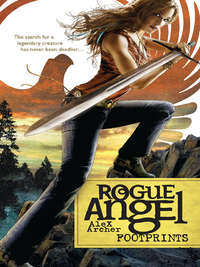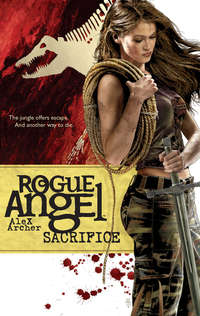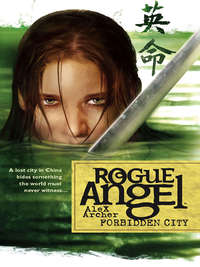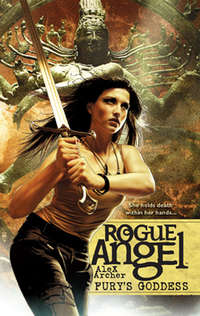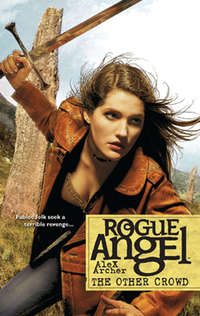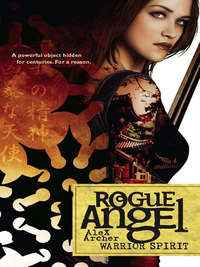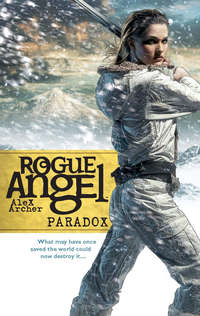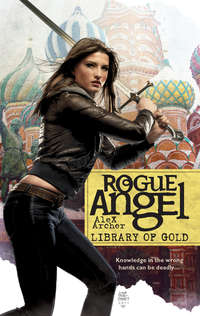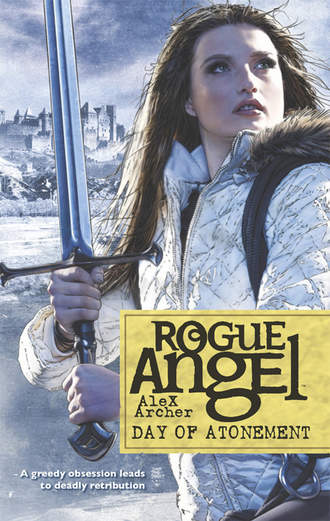
Полная версия
Day Of Atonement
Roux pressed against the viewing window, knowing there was no hope of being able to spot the damned journalist so far below.
People milled around like so many ants on the ground below. He’d read somewhere that if a person dropped a centime on its edge from this height it would cut through a man, splitting him in two. He had a problem. If he didn’t do something about Moerlen now, he might not get the opportunity again before it was too late. He had to stop that story getting out. His privacy afforded him a certain standard of living. Exposed, his life could never be the same again. It really was as simple as that. Moerlen, consciously or not, had forced his hand.
Behind him, the elevator doors began to close. He moved quickly. Two strides, three, and he reached out, sliding his hand between the doors before they could shut. He stepped inside. The silence was punctuated by the occasional disapproving tut from the woman whose boy had spoken to him before.
Roux said nothing.
He waited out the short descent, then pushed his way through the doors before they were fully open, elbowing between the next wave of tourists eager to make their way up to the observation platform without the climb.
He couldn’t see Moerlen; not that there was any guarantee the journalist had ever been there, no matter what he’d said. But if there was the slightest chance he was there, maybe watching from the safety of a nearby café to note how Roux reacted to his taunt, he had to try everything he could. If the guy wanted him to beg, then he’d beg. If he wanted to negotiate some exclusive deal to his story, then he’d negotiate it, but only if he could control it. That was what it was all about now—control.
He tried the journalist’s number again, listening for some telltale ring and all the time he turned through three hundred and sixty degrees, scanning the faces around him. Moerlen didn’t answer.
But Roux could hear a phone ringing.
He moved his own cell phone away from his ear and started to walk toward the sound.
He pushed through a family, barging between mother and father and sending the kids scattering. The commotion caused heads to turn. Roux saw one in particular, a reflexive glance followed by the fight or flight instinct kicking in.
The man ran.
“Wait!” Roux shouted.
More heads turned in his direction, everyone in the crowd thinking the call was for them.
The man didn’t stop.
He ducked his head and quickened his pace, pushing through the gathered tourists as he aimed for the open spaces of the square and the streets beyond where he hoped to disappear.
Roux tried to keep up with him but people kept getting in the way, clustering around the shadow of the tower, seemingly oblivious to the rest of the world. He shouted again, his voice carrying over the heads of the tourists, but Moerlen had worked himself into open space and began to run.
He had no intention of talking.
Moerlen offered another frantic glance over his shoulder to be sure he was leaving Roux behind. There was nothing the old man could do. He couldn’t keep up. In that moment, caught looking back, Moerlen’s foot slipped and his ankle turned as he reached the road, stumbling on the curb. He couldn’t stop himself as fear had him staggering out into the line of oncoming traffic.
A horn blared, harsh, panicked, but it was too late.
Bones and metal met in a collision. There could only ever be one outcome.
The car—a blue Peugeot—slammed on its brakes and started to slide. The car behind it, slower to react, rammed into its trunk to a cacophony of crunching metal and breaking glass.
Moerlen was the only one who didn’t make a sound.
But then, dead men had little to say.
Roux watched as people rushed toward the journalist, the first few to help while others gathered around, horrified. Roux heard someone call out that he was a doctor, the words parting the throng like the Red Sea to allow him through. Roux followed in his wake, knowing that the idiot was dead. It had never been meant to end this way. Yes, he had wanted him stopped, but he hadn’t wanted him hurt.
A woman in a heavy knit cardigan knelt over Moerlen, her hand on his throat.
She looked up at the crowd.
There was a moment when she might have said anything else, when it could have played out differently, but then she told them, “Il est mort.” And it was final.
Roux had known it from the angle of the fall, the way his body twisted on the black surface of the Parisian road.
This wasn’t what he’d wanted. All he’d wanted was a quiet life, the journalist out of it. Peace. It wasn’t a lot to ask, just to be left alone.
Roux heard the Doppler-effect sound of sirens approaching, still streets away. Someone had to have called for help. The crush of bodies eased, people moving back as if the man’s condition might be contagious. The doctor knelt beside the body.
There was a briefcase lying in the middle of the road, having spun out of the dead man’s grip.
The photographs were almost certainly still inside.
Moerlen had been emphatic that they weren’t his only copies. It was irrelevant if they were or weren’t. If the police opened that case and saw all of those versions of the old man’s face, it could only lead to questions. Roux worked his way around the crowd to the briefcase and picked it up, careful not to draw attention to himself.
As the paramedics arrived, he slipped away through the slowly thinning crowd.
3
On a winter’s nightThe present
It was minus seven degrees, closer to minus fifteen with the windchill factored in.
The extreme conditions presented their own problems for filming, including static discharge ruining shot after shot. It was just bone-chillingly cold, and Annja Creed was going snow blind with the swirling flakes twisting and churning in the air as they turned the world to white.
They were outside the tent, standing in the last bluster of the storm. An hour ago it had been like Snowmageddon out there. Now, there was air between the flakes and she could see the high walls of the castle, meaning it was the perfect time for the establishing shot of the medieval site in the heart of winter.
Annja had visited Carcassonne before, more than once, but on her previous visits the weather had always been positively tropical in comparison.
“You ready to go again, Annja?” Philippe Allard, the cameraman, asked, hoisting his camera onto his shoulder.
“Let’s do this,” she said, moving back into position.
On her mark, she waited for the thumbs-up to say that she was good to go.
She took a deep breath, letting it leak out slowly in a mist that wafted up across her face and earning her a scowl from her cameraman. His thumb went up. Annja started talking to the camera as if she hadn’t taken a three-hour break waiting for the worst of the storm to pass. An observant viewer might spot that the snow on the hillside was deeper, but their brains would quickly fill in the gaps and gloss over that inconsistency.
She knew that chunks of the footage would be cut, with other images overlaid on the soundtrack. They’d gathered plenty of fantastic material over the past couple of days. And honestly, once she was back in the studio, a fair amount of the commentary would end up being rerecorded because she was a perfectionist and couldn’t stand to watch a segment that was any less than that. So yes, you put in the work on location, but you did it knowing that, when it was all edited together, some of it would end up on the cutting room floor. Subzero conditions or no.
“Overlooked by the medieval fortress, the Cité de Carcassonne, the land behind me, has been the site of a settlement since Neolithic times. The Romans were among the first to really capitalize on its strategic position, and occupied the same hilltop until the fall of the Western Empire and the incursion of the Visigoths.” She missed a beat as the red light went off, and the cameraman lowered his lens.
“Something wrong, Philippe?”
“Don’t take this the wrong way, but don’t you think it’s all a bit…” He shrugged.
“Weak?” Annja suggested. “Sloppy?” She inclined her head. “How about dull? Or, heaven forbid, boring?” She folded her arms in front of her and shifted her weight, waiting to hear what he had to say.
“Wordy,” Philippe said eventually, making it sound like one of the greatest crimes that could possibly be perpetrated on TV.
She grinned. “Wordy?” Wordy she could cope with. Wordy was just another way of saying that she was talking too much and using long words. Sometimes long words were just fine. It wasn’t like she was about to parade around in a bikini trying to sex-up history in the snow.
“Want to change places?” Her grin was sly. “I’m happy to have a go behind the camera. I’m sure Doug would approve.” Doug Morrell was Annja’s producer.
“Well, my mom always said I had a face for television.” He grinned right back. “You know, what with the whole sun shining out of my ass thing, I’m definitely special.”
“No arguments from me.”
She held out her hand for the camera.
“Are you serious?”
“Why not? Consider it your audition tape.”
“More like the Christmas gag reel.”
Even so, Philippe handed over the camera and waited on the mark while Annja got the camera on her shoulder and started recording.
“Over my shoulder,” he said, waving vaguely in the direction of the fortress, “you can see a prime example of intimidation architecture. The people who built this place really didn’t like visitors, and wanted to make them work for it, giving them a long, steep hill to climb when they wanted to drop by for a friendly croissant.” He grinned. “Unsurprisingly, baguette wielders who made it that far almost certainly ended up with a pot of black coffee poured on their heads from the handy murder holes.” He bowed to Annja. “See? Food and murder. That’s what people want.”
She shook her head. “Okay, okay, I get the point. You’re hungry. Let’s wrap it up for today and go get something to eat.”
“And there was me thinking subtlety was dead.” Philippe took the camera from her.
“My treat. Go take a dip in the pool first. Warm up and work the kinks out of your muscles and concentrate on making yourself look pretty. I want to go for a drive.”
Philippe raised an expressive eyebrow.
“I feel the need for speed,” she said with a grin.
He didn’t need telling twice.
Five minutes later the tent was broken down, the gear stashed in its flight case and loaded into the trunk of their rental car.
The banter didn’t slow down during the drive back to the hotel. One thing this local hire was good at was talking. Flirting, really. Philippe had that roguish charm that all Frenchmen seemed to have, and an accent to die for. Of course she was going to buy dinner. She was a modern woman laying down a flirtatious gauntlet of her own. All work and no play makes Annja a dull girl, she said to herself, sweeping down the narrow road into the town proper.
The snow had gathered on the surface, reducing traction.
Annja drove carefully, enjoying the process of driving stick on a road that really wanted her to work for the privilege of driving down it.
She parked outside the hotel, and made a promise to meet Philippe in an hour. He double tapped on the roof to let her know he’d gotten the gear out of the trunk. She caught a glimpse of him looking at her—trying not to be seen to be looking—as he went inside.
France certainly had its plus points.
Annja turned up the music, pushed herself farther into the driver’s seat and opened up the engine.
She would have killed to be on a motorcycle instead of cooped up in a car, icy wind in her hair, red-lining it around the country roads… There was nothing like the freedom of a bike on open road, but for now the car would have to suffice. The local radio station was running an eighties marathon, which helped, offering up cheesy driving tunes. An hour in her own company would do her the world of good. Jane Weidlin sang about driving in the rush hour. The juxtaposition was brilliant. Snowcapped hills and empty roads couldn’t have been farther from the choking urban slow-death that was Manhattan’s rush hour.
She drove with only the vaguest idea of where she was heading, but it wasn’t as if it would be difficult to find her way back to the town. It was pretty much a case of all roads lead to Carcassonne around here. Worst case, she had the satnav app on her phone to fall back on, assuming she could get a signal in the mountains with the snow worsening again.
Twenty minutes from the hotel, she’d passed a grand total of four cars on the road, and seen the same number coming the other way.
That had changed less than a minute later.
A glance in her rearview mirror offered the glint of a silver car—a Mercedes—half a mile or so behind her. The driver didn’t seem to be in a hurry, but the power of the big car was deceptive, the distance between them closing fast.
A signpost on the hard shoulder promised a right-hand fork that would work its way back around to Carcassonne, so she took it. It wasn’t exactly hot-date territory, but tall, dark and brooding was better than room service for one.
The side road led her onto a second, narrower lane that hadn’t been plowed, forcing her to slow down to stop the rear wheels fishtailing on the icy surface. Snow topped the old stone walls and high hedges lining the road. Annja dropped her speed again, down to thirty, tapping her fingers on the wheel in time with the beat of Simon Le Bon’s vocal promising he was on the hunt, after her.
She joined in with the chorus, remembering another time in France, another wolf. The Beast of Gévaudan, right at the beginning of this whole mad life she was now living.
The road curved up ahead. There were no tracks in the virgin snow. The sound of it crunching under her tires was a constant undertone beneath the music.
The snow-laden trees dumped their burden in a whisper ahead of her, and as the fine dusting settled, she saw a battered red tractor lumber across her line of sight. Even though her vehicle was going slowly, the sheet of ice under the snow meant that Annja wasn’t going to be able to stop in time. She felt the wheels lose their grip and the car start to slide. Thinking fast, she turned into the slide, pushing the rental up onto the grass at the edge of the road, the passenger’s side scraping through the leaves of the hedge, barely inches from the unforgiving impact of the wall.
Even so, there was precious little room to spare, and if the driver of the tractor didn’t do likewise she’d end up forced into the wall.
Annja gritted her teeth, wrestling with the wheel as it wanted to turn relentlessly back toward the oncoming tractor.
The music cut out as she lost the signal.
The only sound inside the car was the scrape of leaves against the fender.
The tractor moved over to the side, leaving Annja just enough room to squeeze through without wrecking the rental. The hood shivered under the impact of another snow dump from overhanging trees. She nearly jumped out of her skin. Her reactions were good. Better than good. She had an almost preternatural control of her body, and even in the unfamiliar car, driving an unfamiliar stick shift, she was able to ramp it up less than an inch from the wall, and scrape along the hedge lining it, without totaling the car, and come out on the other side.
That was close, she thought.
Too close.
She eased on the brakes and came to gradual stop twenty feet down the road, and turned in her seat to see if the farmer was okay. He seemed to have taken the near-collision in his stride, not that she could see his face.
Maybe it was an everyday occurrence? After all, the tractor looked plenty beat-up.
And as far as Annja knew, maybe it was.
The tractor rumbled on its way relentlessly.
It disappeared out of sight, greeted by the sound of a blaring horn. The Mercedes. It was considerably wider than her rental car, and wasn’t going to have a lot of success getting around the tractor. She guessed that this was what counted as congestion in this part of the world.
Annja drove even slower for the next couple of miles, bringing the needle down under the twenty mark, and keeping her eyes fixed firmly on the road ahead, expecting the unexpected to be lurking just around the bend. The snowfall thickened in the air ahead. The wipers were hypnotic, swinging back and forth, back and forth, but as fast as they went they couldn’t cope with the gathering swirl of the snowstorm.
A quick glance at the dashboard clock promised she’d have just about enough time to sneak a shower before she hooked up with Philippe for dinner.
She didn’t see another vehicle until the huge castle was in view on the horizon, a blur in the white. The lane began to widen. It was only then that she realized just how tightly she’d been gripping the wheel.
Annja glanced in the rearview mirror. The silver Mercedes had managed to work its way around the tractor and was back on her tail. She could see the thin-faced driver leaning into the steering column, and a brute of a man crushed into the passenger seat beside him. The Mercedes drew up close behind her as she reached the next junction. She took advantage of the moment to study the two men in her mirror.
The driver revved his engine, meeting her gaze in the mirror. Annja didn’t look away. She was in that kind of mood.
She used the blinkers to signal a right and eased out, taking the road back toward Carcassonne.
The Mercedes followed.
Of course, it was the logical way to go, back into the town. That didn’t mean they were following her.
The snowplows had been out on this stretch of road, making the going decidedly less treacherous.
After a hundred yards, she pulled over to the side of the road, allowing the Mercedes to overtake her, but even as it did, she knew it was just as easy to follow someone from in front as it was from behind. She watched the Mercedes disappear into the swirling white of the snow.
There was something really off about the whole encounter.
4
The call came out of the blue.
Garin listened to the voice on the other end of the line, unsure whom he was talking to and incredibly curious as to how he had managed to get hold of his private number. Both problems were tempered by the fact that the man had a job that he was interested in. It wasn’t every day a gig turned up that piqued his interest, and this time it wasn’t all about the money.
“Obviously, given the nature of the artifacts I am looking to acquire, this is a sensitive undertaking,” the voice said. “But I have been led to understand that you are the man for the job.”
“Well, I’d say that rather depends on a combination of things, but right now I’m listening, which puts you ahead of the game. So, let’s put the bush over there and stop beating about it, shall we?”
“By all means.”
“What you are looking for?” After the lure of the cloak-and-dagger approach, the worst thing that could happen now was that voice would spoil everything by asking for something mundane. There was nothing more disappointing. There was no joy in locating something bland, even if it involved a great deal of money. It was all about how you valued time, and sure, Garin had more of it than most, but his time was the most precious commodity he possessed, meaning giving it up had to be worth something. And even then he might be inclined to refuse. No, the thrill of the chase, the great hunt, the glittering prize…they were all part of the package. If one of them were missing from a job, the likelihood of him getting out of bed to deal with it were poor.
“The initial task is a relatively simple retrieval job. I would like you to locate the private papers of Guillaume Manchon, a court scribe at the church court in Rouen for the years 1430 and ’31.”
Manchon? The name rang a distant bell, but that was nothing next to the Klaxon the date and place set off in his head. The year 1431 was burned in his memory; it was the end and the beginning of all things. It was the date of Joan of Arc’s trial and execution and the beginning of the curse that saw him walking this earth more than five hundred years later.
“You have my attention,” he said, which was true. Anything that pointed back in that direction was intriguing.
“I had rather hoped I might. Alas, the papers are no longer there, so you will need to be, ah…creative. Guillaume made his notes in French, and they were later translated into Latin with five copies made. The French original and three of the transcribed Latin copies are in private collections, and unfortunately getting access to them is next to impossible.”
“So by retrieval you mean theft?” Garin decided to come straight out with it. Breaking the law wasn’t a deal breaker for a man like Garin Braden. More often than not a brief flirtation with the dark side only added to the thrill.
“Ah, no, no. Actually, I want you to find me one of the missing copies.”
“How can you be so sure that they still exist? Do you have a lead on one of them? Evidence, perhaps, that there is another copy that hasn’t been destroyed?”
“Sadly, no. I am laboring purely under the apprehension that what is lost can be found, and that you are the right man to track them down.”
“Remind me again who recommended me?”
“Remind? I didn’t actually say a first time. Suffice it to say it was a most impeccable source or I wouldn’t be talking to you now.”
“That’s really not saying very much, is it?”
“And yet it speaks volumes, if you care to think about it for a moment.”
Garin wasn’t so sure.
“Okay, let’s assume this mysterious benefactor knows his stuff and that I am indeed the man for the job. Why do you want these papers? What’s so fascinating? What makes them special, apart from the fact they’re nearly six hundred years old obviously?” More often than not, the answer to that question was more money than sense, with the buyer willing to throw cash at some mythical El Dorado.
“Please, don’t take me for a fool, Mr. Braden. I am sure that you know full well why a scholar such as myself would be interested in documents created in Rouen in that particular year.”
“Do I?”
“Put it this way—if you don’t, then I will have to reconsider the recommendation, and believe that I have made a gross error in judgment.”
“So these documents relate to the trial of Joan of Arc?”
He could almost hear the man’s smirk as he said, “That’s more like it. No need to be coy. As I said, these papers are just the first of several artifacts I am seeking. In the interests of full disclosure, I will email a complete list once we have agreed upon a fee for your services.”
Garin’s mind raced to an extortionate figure; after all, if the man was as determined to get hold of these artifacts as he sounded, he was ripe for a little extortion. “Three million, plus expenses,” he said, plucking the number out of thin air. He expected the man to counter with a lower offer and a back-and-forth of offers and counters to follow. It didn’t.
“Dollars or euros?”
“Euros,” he said without missing a heartbeat. “And this is purely for the papers. Anything else I turn up is extra.” It was a fishing expedition, of course. The hook baited, he wanted to see just how desperate the man was to get his hands on these lost words. “If I can’t find them, you don’t pay me. Fair?”
“Of course.”
The man hung up without another word.
Garin was glad that the caller could not see the smile that had spread across his face.
He wasn’t smiling because he was looking forward to the challenge of the hunt, though that would normally be the case. Garin wasn’t the kind of man who chased legends. He left that sort of thing to Annja Creed. He wasn’t interested in history’s monsters. He had gone toe-to-toe with more than his fair share of them. No, he was smiling because he knew the exact location of one of the two missing transcriptions of Guillaume Manchon’s papers.


